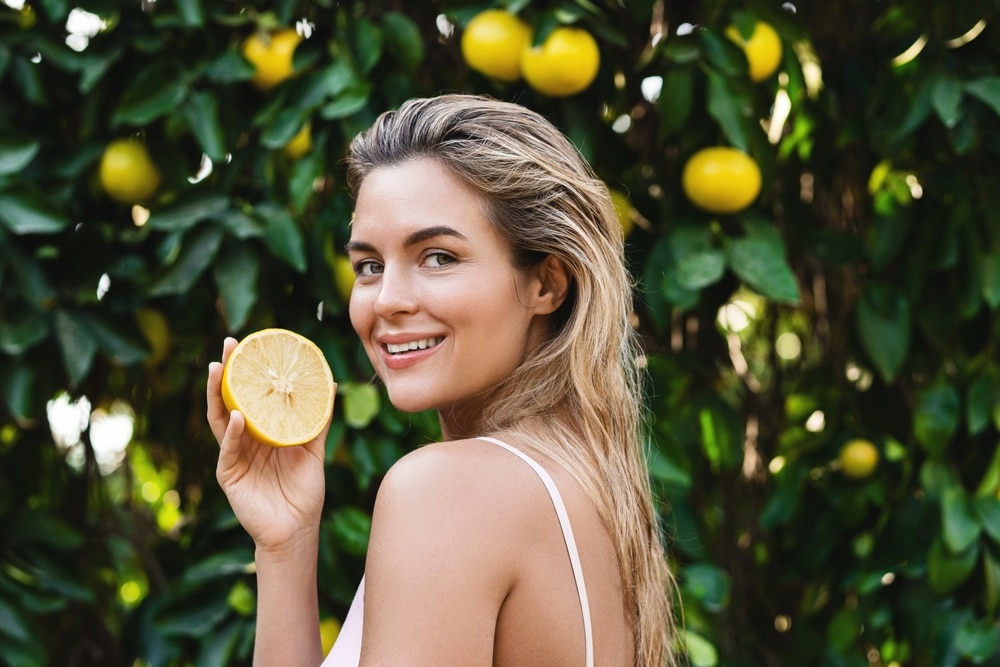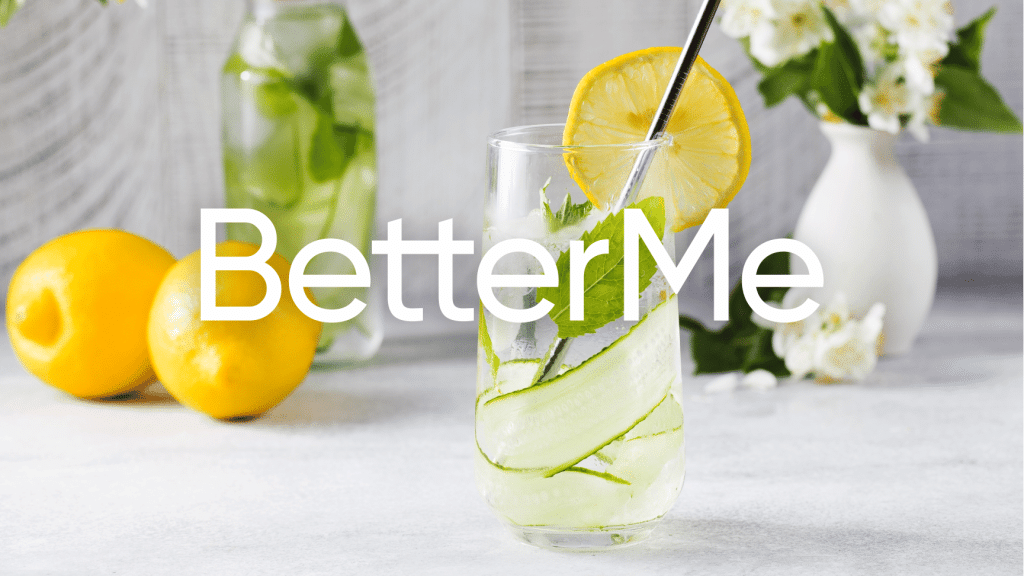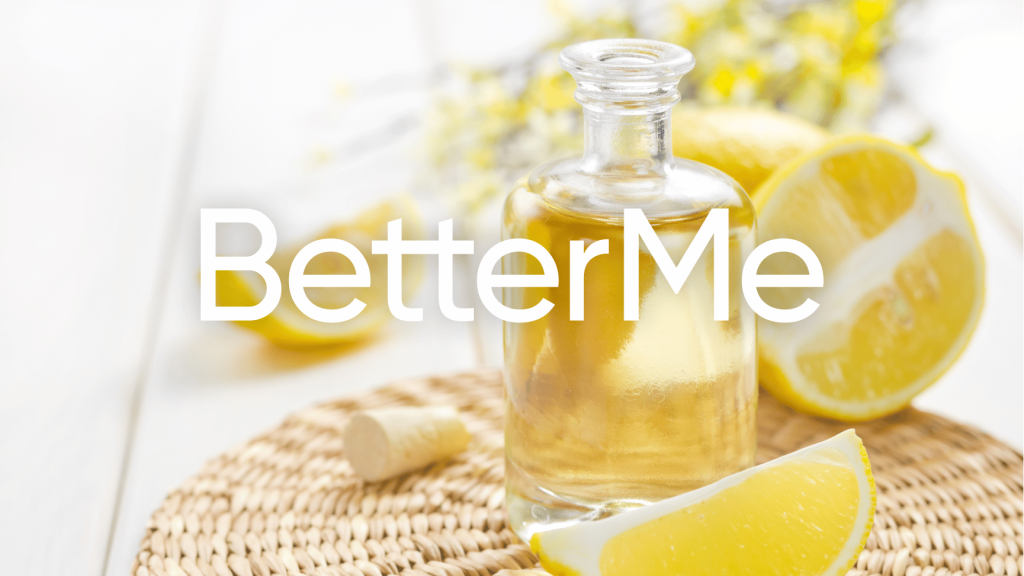Are you tired of dealing with weak, lifeless hair and excessive hair fallout? Do you wish for a simple solution to revitalize your hair and restore its natural strength and shine?
Living in a fast-paced world, we often neglect our health needs due to our busy schedules and demanding lifestyles. With the constant pressure to achieve our goals and meet deadlines, taking the time to prioritize our health can become an afterthought. Among other things, this may lead to neglect of hair care, causing its damage and breakage. Exposure to pollution and harsh chemicals can also weaken the hair, leading to hair fall and other hair problems. You may be looking for a simple solution to end all your hair care problems instantly, and here’s some good news, you don’t have to look any further – Vitamin C could be just the solution you’ve been looking for. Research suggests that a vitamin deficiency may cause a lack of collagen, weakening, and hair damage (1). Although vitamin C deficiency is rare, vitamin C may be taken in oils and food to prevent hair loss. In this article we have rounded up a list of reasons to add Vitamin C to your hair care while exploring answers to the most asked question – Is Vitamin C good for hair? Have a look!
Get your personalized
meal plan!
Why Is Vitamin C Good For Hair?
Vitamin C is one of the essential nutrients needed in the human body for growth and maintenance of healthy hair. How exactly does Vitamin C work in our body to support hair growth?
As this nutrient enters the bloodstream in our system, it works its way up to our hair along with several other parts of our body. It helps support the growth of collagen, a protein naturally produced by our body to strengthen the hair follicle and prevent breakage.
Here are some ways that Vitamin C can help your hair:
May Stop Hair Loss
Vitamin C may interact with a hormone called DHT which causes shrinkage of the hair follicle. By suppressing DHT, vitamin C might help prevent hair loss. By supporting collagen production, vitamin C might also help promote new hair growth.
Strengthens Hair
Since collagen is important for strong hair, vitamin C may help improve hair strength and health by supporting collagen production.
Neutralizes Free Radical Hair Damage
Experts say that Vitamin C works as an antioxidant to prevent damage caused by free radicals, which can help keep the scalp healthy. Vitamin C’s antioxidant properties may be beneficial when applied topically and consumed orally.
Read More: Unlocking The Potential Of Vitamins For Anxiety Relief
Is Vitamin C Good For Hair Growth?
We may have heard about how this antioxidant plays an important role in stronger and improved hair, but what scientific reasons may motivate us to look into Vitamin C as a solution to dry, brittle hair? Vitamin C plays two major roles in hair growth – promoting collagen growth and protecting hair cells from free radicals. Our bodies naturally produce unstable molecules that can cause damage to our cells and tissues, known as free radicals. Vitamin C can be a strong antioxidant that prevents this damage, supporting hair growth and restricting cell damage and inflammation (3).
Additionally, Vitamin C plays a crucial role in maintaining healthy hair by supporting keratin production and enhancing iron absorption. Keratin is a fibrous protein that makes up the structure of hair, while iron is an essential mineral for healthy hair growth. Vitamin C supports the formation of the cells that make keratin and improves the absorption of iron from the diet, which helps to maintain strong, healthy hair. Research also suggests that Vitamin C supplements are known to increase iron absorption in your body (4).
Therefore, ensuring an adequate vitamin C intake through diet or supplementation can benefit individuals looking to improve their hair health.
Is Vitamin C Good For Hair Loss?
Getting enough vitamin C might help prevent hair loss and/or support new hair growth.. However, excess of anything is not beneficial, and large amounts of Vitamin C intake may lead to gastrointestinal problems such as diarrhea. The recommended daily intake by adults for this antioxidant is 75-90 mg (1).
It is important to note that hair loss may not be solved solely with higher consumption of Vitamin C. Several other nutrients and habits must be added to improve overall hair health and structure. It also may depend on the reason for the hair loss, and nutrients like vitamin C may not help in every case.
How To Use Vitamin C For Hair Growth?
Sometimes, figuring out the perfect way to infuse certain vitamins into your diet and general lifestyle can be hard.
Hence, we have stated some ways to add Vitamin C through daily habits and minor changes.
If you wish to free yourself from all the extra pounds that have been weighting you down for way too long, start using the BetterMe app and overhaul your entire life!
Vitamin Rich Foods
One of the easiest and natural ways to increase the intake of this antioxidant can be to consume foods rich in vitamins and minerals that are proven to be the best for natural hair growth, such as berries, nuts, fatty fish, and eggs. In the case of vitamin C, fruits and vegetables like citrus, strawberries, and bell peppers among others tend to be excellent sources.
Research shows that your body does not retain Vitamin C as it is a water-soluble vitamin; that means we must keep them in our diet regularly (5). Experts suggest that consuming five servings of fruits and vegetables daily can provide approximately 200 milligrams of vitamin C per day (6).
Vitamin Supplements
Another fairly simple method is to infuse vitamin supplements with the recommended daily dosage. Vitamin C supplements such as tablets, capsules, powders, and gummies may be consumed in multiple ways. Adults should aim to consume 75-90 milligrams of vitamin C daily, but higher doses may be required for certain individuals, such as smokers or those who have had a history of vitamin C deficiency (1).
Some forms of vitamin C supplements, such as ascorbic acid, can be acidic and cause digestive issues. In contrast, other forms like calcium ascorbate or magnesium ascorbate are gentler on the stomach. Therefore, it is highly advised to consult with a licensed specialist before starting any new supplement regime.
- Use Vitamin-rich Oils: You may incorporate vitamin-enriched oils in your daily hair and scalp routine for healthy hair. For instance, using a hair oil that contains vitamin C-rich ingredients such as rosehip or argan oil can help to nourish the hair and improve its overall health. Another way to increase vitamin C intake through oils could be by adding a few drops of vitamin C-rich oil, such as lemon or orange oil, to a carrier oil like coconut or jojoba oil and using it as a hair mask or leave-in treatment. This can help to provide a direct source of vitamin C to the hair and scalp, which is likely to promote hair growth and improve the health and appearance of the hair.
- Nutrient-dense Hair Masks: You may also use vitamin-infused hair masks with naturally derived ingredients as a pre-shower treatment. For example, mix avocado, banana, and honey to create a mask high in vitamins A, C, and E. These masks can be applied regularly to nourish the scalp and improve the hair structure.
What Does Vitamin C Do For Hair?
Vitamin C might improve hair health and is an essential antioxidant to fight oxidative stress. Iron deficiency may lead to weakness and hair thinning; this antioxidant also helps with iron absorption (4).
It also supports the cells that make keratin, a protein known to make up the structure of the hair, skin, and nails. Keratin helps maintain the strength and integrity of these tissues.
Furthermore, collagen synthesis and antioxidant activity additionally create a strong healthy hair follicle. Promoting collagen synthesis may also help with various other health aspects, such as maintaining healthy skin and nails. Its antioxidant activity is also believed to support cardiovascular health and enhance the blood vessel’s ability to function accurately (8).
Read More: The Benefits Of Vitamin B3 For Skin: Everything You Need To Know
How To Take Vitamin C?
There are multiple ways to use Vitamin C for its benefits, such as using it through food, serums, facemasks, shampoos, and vitamin supplements. If you decide to increase your Vitamin C through food, include chili peppers, broccoli, kale, papaya, strawberries, mango, pineapple, bell peppers, oranges, lemon, and kiwi in your diet. Additionally, you can take Vitamin C supplements orally, add Vitamin C serums to your skincare routine, or try vitamin C-rich oils like rosehip.
According to experts, Vitamin C is generally safe for all hair types, but some may benefit more than others. It is suitable for all hair types, especially for people with dull or brittle hair. However, those with dry hair should be careful; some hair products can remove more oils and cause dryness.
While it can be used on all hair types, it is recommended to consult a medical professional to determine the underlying cause of your hair issues. Even though someone may not be allergic to Vitamin C, they may experience discomfort from other ingredients in the product. Individuals allergic to an ingredient in a hair product should avoid it, and those with sensitive skin should test it on their elbow for a few days before using it on their scalp.
The Bottom Line
To summarize, consuming vitamin C is crucial in maintaining optimal hair health. Its important functions include aiding in collagen synthesis, acting as an antioxidant, promoting iron absorption, and supporting the cells that produce keratin, all of which contribute to stronger and healthier hair (5).
Including vitamin C-rich foods in one’s diet or taking vitamin C supplements to improve hair health might be recommended if you can’t get enough from food. Still, it should be noted that vitamin C is just one of many essential nutrients needed for healthy hair, and a well-balanced diet that includes a variety of vitamins and minerals is necessary for optimal hair health. It is always advisable to consult with a healthcare professional before starting any new supplement regimen.
DISCLAIMER:
This article is intended for general informational purposes only and does not serve to address individual circumstances. It is not a substitute for professional advice or help and should not be relied on for making any kind of decision-making. Any action taken as a direct or indirect result of the information in this article is entirely at your own risk and is your sole responsibility.
BetterMe, its content staff, and its medical advisors accept no responsibility for inaccuracies, errors, misstatements, inconsistencies, or omissions and specifically disclaim any liability, loss or risk, personal, professional or otherwise, which may be incurred as a consequence, directly or indirectly, of the use and/or application of any content.
You should always seek the advice of your physician or other qualified health provider with any questions you may have regarding a medical condition or your specific situation. Never disregard professional medical advice or delay seeking it because of BetterMe content. If you suspect or think you may have a medical emergency, call your doctor.
SOURCES:
- Vitamin C (n.d., ods.od.nih.gov)
- Oxidative Stress in Ageing of Hair (2009, ncbi.nlm.nih.gov)
- Discovery Shows New Vitamin C Health Benefits (2005, sciencedaily.com)
- Vitamin and Calcium Supplements (2022, medicinenet.com)
- The Benefits of Vitamin C (2022, webmd.com)
- Tips for Getting Vitamin C (2000, webmd.com)
- Scurvy (2017, emedicine.medscape.com)










